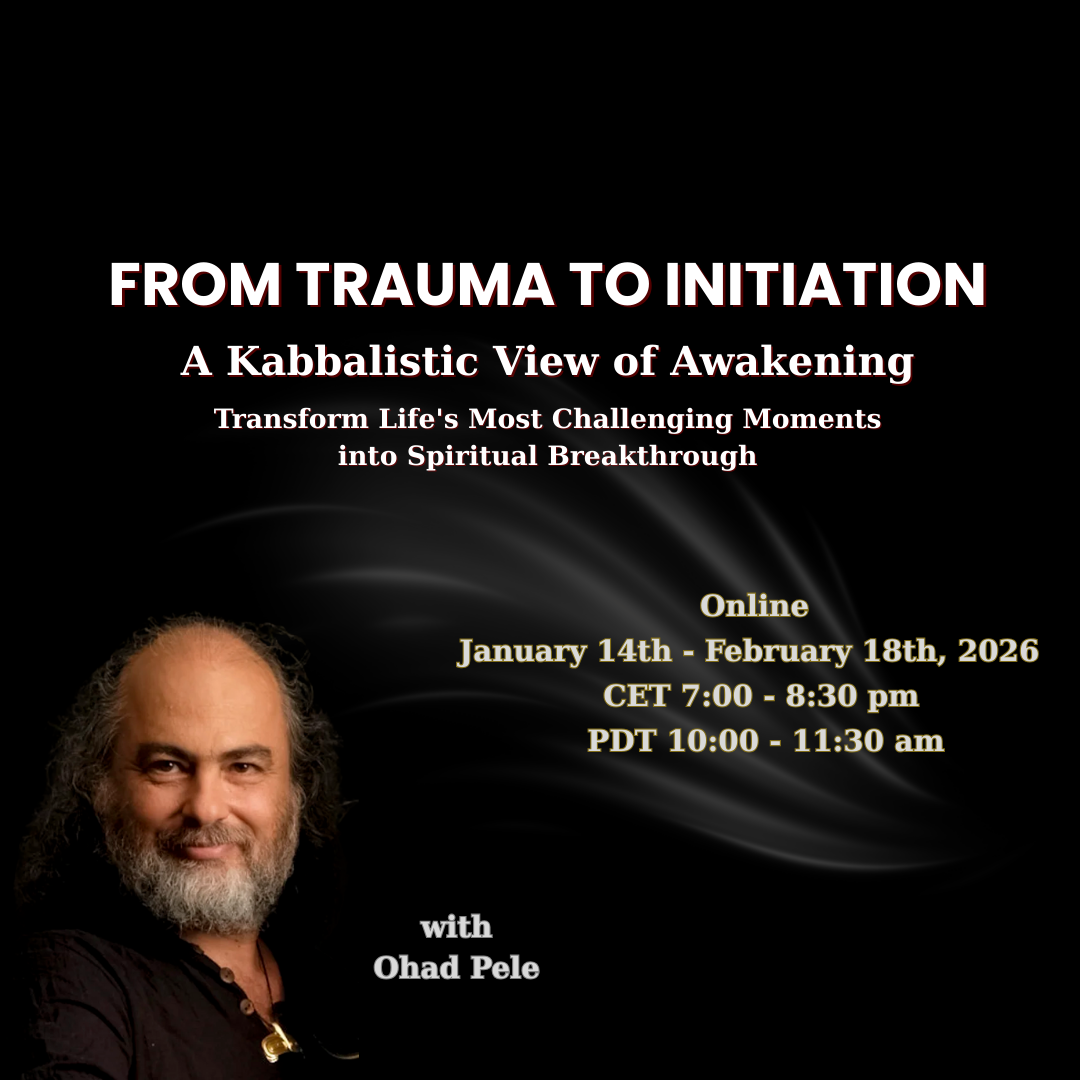Sex&God - The Silence Beyond Language
In a world of definitions, labels, and names, I believe it's important to pay attention to those places where language itself acknowledges its limitations and leads us to a sublime silence.
The Hebrew language presents us with two notable examples: first in reference to the divine essence, and second is in its references to sexual organs and sexual activity itself. In both these domains, according to mystics and ancient thinkers, Hebrew deliberately avoided giving direct names. In my humble opinion, this choice contains a deep insight about the nature of the sanctity inherent in sexuality.
Beyond Language
Maimonides in "Guide for the Perplexed" clearly states: "All names that are attributed to Him (that is, to God) are borrowed names, not essential names" (Part 1, Chapter 56), and adds that true perfection is "achieving the negation of attributes from Him" (Part 1, Chapter 60).
This means that divinity has no essential name, and all sacred names such as 'Elohim', 'Shaddai', and even 'YHWH', are merely borrowed names. All that human consciousness can know about the divine absolute is by way of negation, meaning one cannot attribute positive qualities to God (such as "wise", "merciful", etc.), because any positive attribute limits the divine absolute. Instead, one can only negate deficiencies (for example: "He is not stupid") or borrow names that describe His actions in the world, but not His real essence.
Similarly, the great Kabbalist of 16th century Safed, Rabbi Moses Cordovero (the Ramak), explains in his book 'Pardes Rimonim' about the divine infinity: "It has no name at all, for every name is a limitation, and the Infinite One, blessed be He, is without limit." (Gate 1, Chapter 1).
Language, in its essence, is a tool for capturing reality into defined concepts that can be distinguished from one another. But the divine infinity, as the source of all existence, exists beyond all definition and boundary. The Kabbalist Rabbi Meir ibn Gabbai strengthens this position by quoting Rav Hai Gaon (head of the academy in Babylon in the 11th century) who speaks of the supreme roots of existence "that have no known name, due to their extreme concealment", and adds "and likewise the source that has no beginning has no known name".
Genitalia Beyond Words
In an apparently different context, Maimonides in his "Guide for the Perplexed" presents his idea for why Hebrew is called "the holy tongue": "because this holy language has no name at all for the sexual organ, neither of men nor of women... but all this is said in it indirectly and through metaphor." The Maharal of Prague, in his book 'Netivot Olam', cites Maimonides and emphasizes that "the sex organ of a woman is called 'that place'", meaning, without a direct name but through indirect references and various metaphors.
Maimonides’ intention is that the Bible and the Sages use a “clean language” -indirect or extremely rare- to describe sexual organs and intimate acts. Hebrew words such as Pin (penis), Pot (vulva), Shegal (concubine/sexual partner), Shakav (to lie with), or Evyonah (orgasm) are not independent, everyday, and direct terms, but rather borrowed, rare, or multi-meaning words. In the Jewish sources, there are no straightforward and unvarnished words for sexual organs or for the sexual act, but only “clean language,” indirect, or borrowed terms.
Maimonides himself, as a person, did not see sexual activity as inherently worthy of sacred regard. In his view, sexuality exists only for reproductive purposes, and should not be indulged in excessively:
"This matter (sexuality) exists only for reproduction. The opinion of the sages is not pleased with one who engages excessively in sexual relations, and is constantly with his wife like a rooster; he is deeply flawed, and this is the behavior of ignorant people. Rather, one who minimizes sexual relations is praiseworthy" (Mishneh Torah, Laws of Forbidden Relations, Chapter 21).
It is therefore reasonable to assume that when Maimonides wrote in the Guide for the Perplexed that Hebrew is a holy language because it has no words for sexual organs, he meant this in the literal sense.
However, knowing that the Guide for the Perplexed is a book containing secrets and hints that remain hidden from its readers until they reach an appropriate spiritual level, I want to suggest that these two phenomena can be connected under one arching roof. In relation to divine essence and human sexuality, language retracts from defining things by name and makes do with references, metaphors, and borrowed names — for exactly the same reason.
It is entirely possible that Maimonides himself would not agree with me. But as the great Kabbalist Rabbi Abraham Abulafia wrote in the 13th century in his book "Geulah," there are hidden secrets in Maimonides' Guide for the Perplexed that Maimonides himself did not fully comprehend: "Know that all that Rabbi Moses wrote in the Guide for the Perplexed, he did not comprehend it all, and although he wrote what he wrote, he did not know its secret to its fullest extent."
Abulafia's words open a window to the understanding that Maimonides, in writing the Guide for the Perplexed, served as a channel for the descent of insights and ideas whose depth sometimes transcended his conscious intention as a person with a specific personality. Therefore, even if Maimonides as a private individual would not agree with my words, I will follow Abulafia's path and claim that in the words of the Guide for the Perplexed there exist layers that Maimonides himself had not yet plumbed, and one of them, in my humble opinion, is the way in which the sacredness of sexuality resonates with the sacredness of the Creator.
The avoidance of the "holy tongue" from giving direct names to both God and Sex does not, therefore, stem from different reasons, but from exactly the same reason: language humbly acknowledges the sanctity of both domains, and their primordial power that extends into pre-linguistic fields of consciousness. Divinity and sex are two things that, even if one can talk about them, can never be directly spoken. In their essence, they extend beyond language, beyond words, and it is precisely the silence and the use of indirect language that point to their deep, infinite, primordial, and creative nature. Language, in its essence, is a tool for distinction and separation - "this and not that." But in the primary sources of life - in divinity and in the power of sexual creation - there lies a unity that precedes separation, and a power that precedes definition.
Primordial Eros
The recognition that sexuality is a primordial force that predates all divine names is not exclusively Hebraic. For the pre-Socratic philosopher Parmenides (5th century BCE), Eros was the first among the gods, emerging from the bosom of the primordial cosmic truth. Parmenides' Eros predates all the Titans, who represent primitive forces, and all the Olympian gods who express the archetypes of human culture. Although Eros has an Olympian manifestation in the form of the mischievous son of the goddess of love Aphrodite who shoots arrows of desire and drives people mad, his origin is more ancient than her and all the Olympian gods combined. Just as sexuality has found a way to express itself in our lives as part of the complexity of love life, but in fact, the creative and generative power embodied in sex is ancient, primeval, and sacred, beyond anything words can contain, so too does Eros in the ancient Greek consciousness appear as a mischievous youth among the Olympian gods, but if we trace his roots, we discover that he is more ancient, primeval, and sacred than they are.
In its humble silence, the holy tongue expresses recognition of the deepest sanctity of sexuality, that which cannot be called by name.


